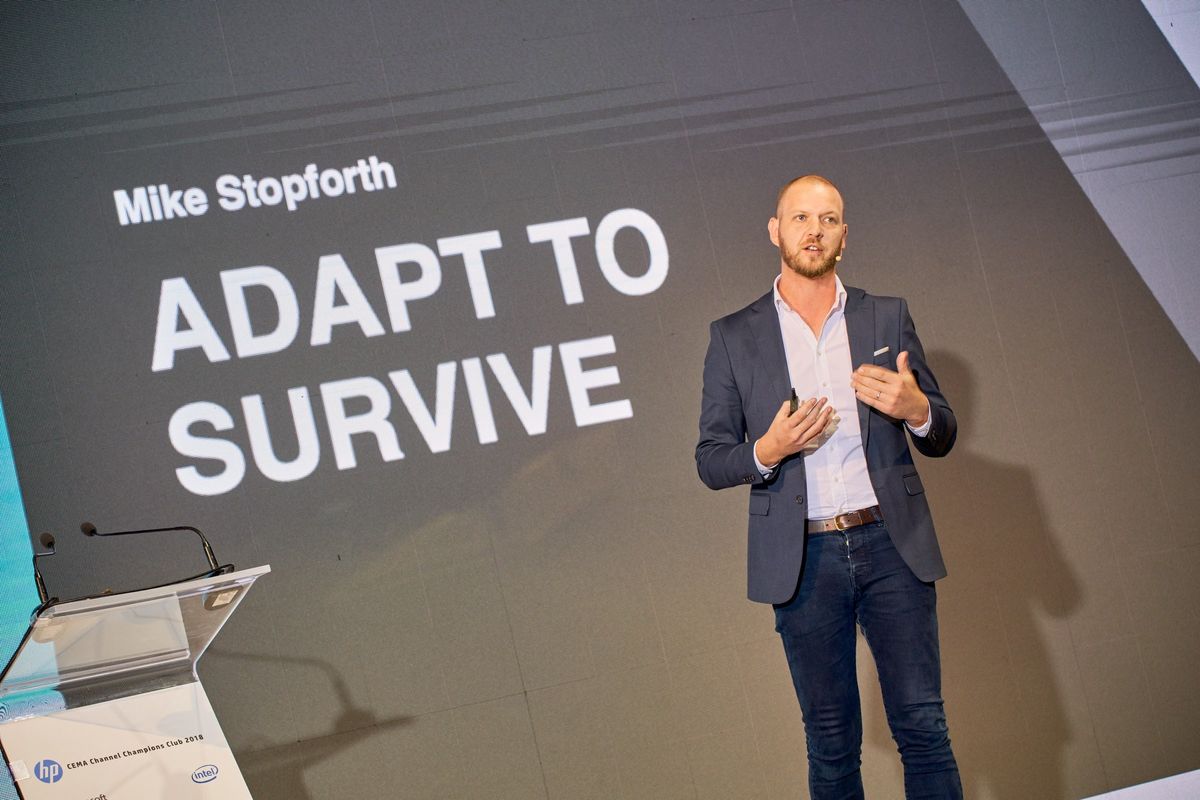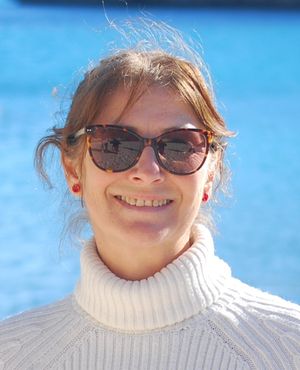Johannesburg, South Africa
"Look at the narrative surrounding failure in Silicon Valley — it's like they celebrate failing big seven times before making it," says Mike Stopforth, co-founder of breakout social media crisis agency 48H (48 hours), "We don't have the same leeway here in South Africa."
We're ending an hour-long interview spanning the social media landscape, leadership, communication, and entrepreneurship in a South African context. "South Africa's this really interesting paradox of opportunity and risk." Stopforth explains, "There's a lot of chaos, and within that, there are gaps for value creation. The counterpoint to this opportunity is the risk of failure. We don't have the same capital cushion; the resources are thinner. Here, if you're going to play a couple of hands, you need to make absolutely sure that you've been very thoughtful and very deliberate."
This risk of failure partly prevented Stopforth and co-founder Victor Dlamini from going in all-guns-blazing when they launched the company in late 2020. "It was more of an experiment than anything else," he says. "But the market response was great." Despite taking a careful, deliberate approach initially, 48H's services were a hot commodity within a relatively short time. Just two years after launching, the startup counts some prominent South African companies amongst its customers, including First National Bank, telecommunications giant MTN, and insurance heavyweight Santam.
For all the risk of failure he's described, Stopforth and co-founder Victor Dlamini have a knack for playing their hand at the right time. Stopforth founded social media agency Cerebra in 2006, "Just when that wave of interest and growth in social media was cresting. We benefited in no small part from first-mover advantage." Under his watch as CEO, Cerebra grew into one of Africa's leading agencies of its kind, working with the likes of Coca-Cola, Samsung, and Google. In 2013 it was acquired by global advertising giant WPP.
Dlamini, on the other hand, is a multi-skilled creative and strategist who has long operated at the intersection of photojournalism, communications, and reputation management. As the founder of two previous communications agencies and the special advisor to a litany of public figures, Dlamini's ability to read the room across cultures and media platforms might be his ace in the hole.
After its acquisition, Stopforth would remain at Cerebra until 2018 before deciding to make a change. "I'm entrepreneurial by nature, so I took 2019 off to do a Master's Degree in Leadership, Technology, and Impact, traveling back and forth between London and Johannesburg. I came out of that with a real passion for exploring the intersection of those three really interesting topics, and two work projects were born out of that."
One was digital transformation and literacy consultancy Beyond Binary, where Mike is the director. The other was 48H.
The space for 48H
"If the printing press made the illiterate literate, social media has made the unpublished published," he offers. It isn't said with any regret or resignation — it's just an observation of the state of play. No matter the thought, gripe, hot take, or witty quip, chances are it already exists on some social network. The only question is whether or not it's gone viral, and if it has, was it for good or bad?
This landmine-strewn area right at the nexus of social media discourse and brand reputation management is where 48H is breaking ground. As the startup's website says, when it comes to an online crisis, "The First 48 Hours Are Crucial."
Not long after breaking into the market, Mike and Victor were invited to present at the Nedbank IMC Conference in 2021, where they set out their stall:
"The big shift from print and broadcast media to online channels…has significantly accelerated the speed at which information can be disseminated to millions of people around the world. Someone can post something that quickly goes viral and leads to a crisis. Once this happens, not even the source of the message has the power to reign it in... In this new world of democratized mass publishing, every business should consider itself a candidate for an existential crisis."
This is where 48H steps in, partly as online firefighters and partly as fire-prevention specialists. As Mike describes it, "One part of what we do is sort of a SWAT team for social media — a kind of Ghostbusters. But obviously, prevention is better than cure."
"But you know, with brands of a certain level of complexity, it [crisis] is kind of inevitable. So how do we make sure we've got the right policies, systems, processes, structures, education, understanding, scenario planning — whatever it might be — in place so that when the crisis hits, we are less emotional and less reactive, and a little bit more balanced and deliberate."
The ability to remain balanced in the heat of a charged situation is one of the issues brands struggle with most. "It's less often the original situation that goes viral. It's how the brand responds that becomes the bigger issue," Mike explains. "I call it kicking the kid. If you see your child having a hard time, maybe getting in a fight, no matter the reason, it's almost impossible to be objective. Marketers are trained to look at their brands with rose-tinted glasses, much like parents. They often can't avoid a knee-jerk emotional response."
"So our job is to come in as a mediator, to see these situations from all perspectives because the way we respond is going to determine the level of damage."
Diversity of thought
Stopforth, who is white, points to his relationship with his black co-founder Dlamini as a strong point for 48H. In a country like South Africa, with 11 official languages, an incredibly diverse cultural landscape, and continuing racial, social, and economic tensions, the need to see issues through multiple lenses is crucial.
"Obviously Victor and I come from different cultural backgrounds. So I look at a situation with one set of eyes and one perspective, and I might read it in a certain way, and he really holds me accountable to that view. We can have really big debates on political and social commentary; we can really be rigorous about big issues in a place of safety and trust. This allows us to go to the customer with a very objective view."
This leads Stopforth to another significant point about doing business in South Africa, which is crucial in communications. "What is quite unique about South Africa, I think, is the colourfulness of our communication landscape. It's not just multiple languages. It's multiple contexts, multiple subcultural elements with even more nuances."
"There's nothing worse than, say, a brand trying to engage meaningfully on 'Black Twitter' without having an understanding of the rapport or the hierarchy of conversation. Sure, there are companies who can differentiate by offering responses in English, Afrikaans, isiZulu, and isiXhosa, but those things are quite superficial. That's just a matter of resources, right? If you want to really differentiate, your ability to read the context well, to kind of anticipate the direction of conversation, to get a sense of the temperature and where the community is at… that becomes a really powerful strength."
Underprepared in an underserved space
Another major part of the issue brands face is that the role of Community Management is far too one-dimensional and vastly underserved. "The Community Manager is kind of a new role in the communication ecosystem. Many companies are essentially asking one person, or too few people — often young and fairly inexperienced — to do reputation management and monitoring, reporting, data analytics, content creation, copywriting, design, influencer engagement, PR, customer service, response and resolution, and business analysis all at once."
"That's completely unrealistic, and if you do find somebody who can do it — because there are unicorns — then all the institutional wisdom that they've gathered through their interactions on these channels, [and] the rapport they've built, end up leaving with them because there's no career growth path. There's risk on both sides of that equation, even if you do happen to find a unicorn. Unicorns tend to leave."
Stopforth elaborates on the need to create a greater appreciation for community management, "It needs to be seen as far more multi-dimensional, a specialization with seniority and growth paths, with very special skills."
"Once you understand it like that, then you can begin to build these teams and empower them, educating them in a very different manner to what we've done before. That would be part of the prevention component that 48H is working on. Let's equip and enable these people to do their jobs well."
Indeed, this could be the next phase for 48H. Stopforth reveals that the company has recently received some equity funding, which it aims to use to increase its full-time headcount and potentially build a "...new type of contact center of Community Managers for brands."
Fundamental skills
Before calling time for our meeting, I'm keen to hear Mike's two cents on what makes a good entrepreneur and leader. He elaborates on three. "I really think the ability to think critically in a complex situation is crucial. For example, to be able to balance what you need to do now versus what you want to do in three or six months, and how those two points can meet."
"Secondly, and I really do believe this more and more, is this combination of presence and communication skills in leadership. I'm a firm believer that culture is ritual and repetition — and the ability to communicate those two things, the rituals of your business, and to imbue and exude those values over and over again is powerful. The skilled leader understands that you just can't do that enough."
On networking and connection, he reflects that this may be something reserved for more developing economies rather than global powers. "South Africa is a bizarrely apologetic nation. We say sorry for everything. I think we're really hesitant to go and ask for help and to go and connect and sit with the person we perceive to be important. Most Americans that I've interacted with just get right in there, seek help and offer their own, and often end up batting above their average. I think we tend to undervalue our own contributions or potential, and as a result, we fail to recognise the power of networking because we don't leverage networks as much as we should."



